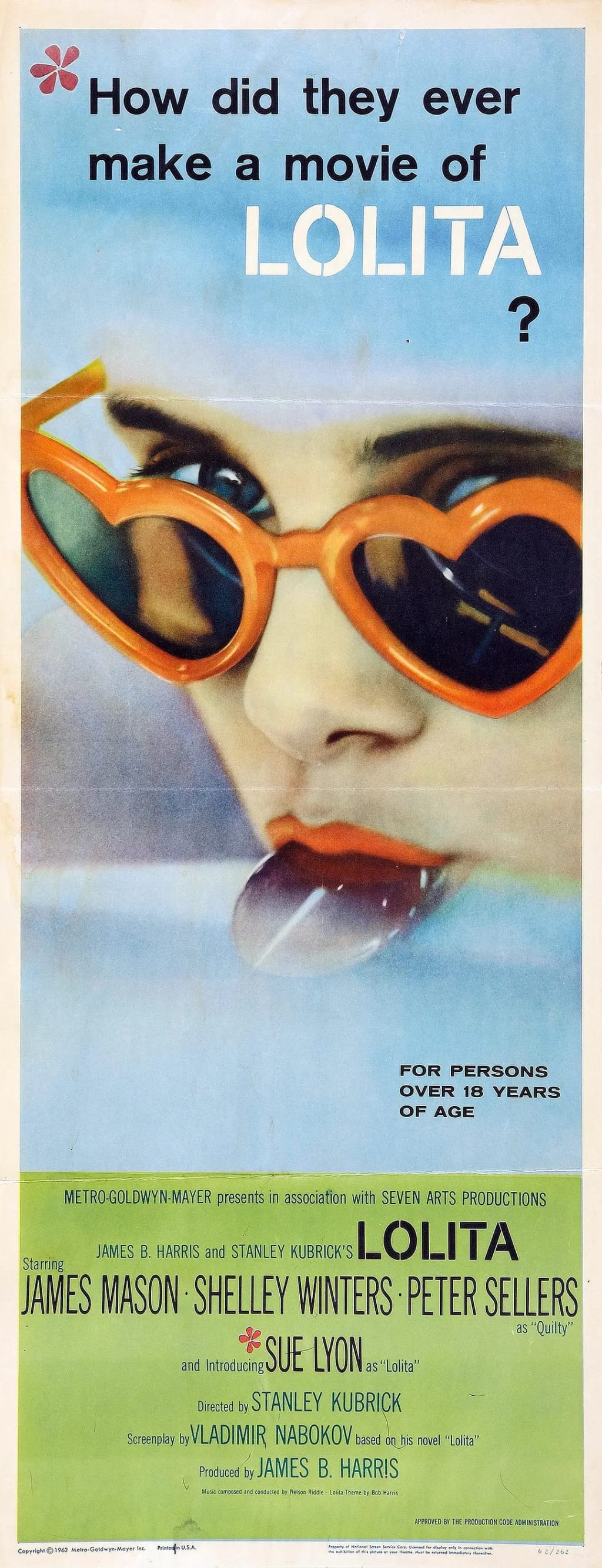
After watching Lolita shot by Kubrick last night, I was very depressed, sighing and panting. I'm not concerned about Lolita-it doesn't matter whether it's just a strange relationship of "a pear tree pressing a Chinese flowering crabapple". Irrepressible desires are the theme. A well-educated intellectual with exquisite mind, when he is crazy about his desires, everything seems so terrible.
The first scene of the film, the messy home of "playwright" Quilty, reveals a surreal atmosphere. The plot in the film is not so much a natural sequence, but rather a crazy journey within one's heart. If I may explain, a clue that runs through the film is: how do the fragile, fanciful, but arrogant and jealous intellectuals meet people in the lively, material and new world?
Mr. Hubert, a doctor from the old world, teaches French poetry, and is brought up by intellectuals. And his landlady, a typical American woman at that time, was healthy and cheerful. She liked to jump two sentences of French at ordinary times, but she was absent-minded. She was only vulgar and ignorant in the eyes of Europeans. She loves Humbert's cultural temperament, while he only loves her youngest daughter Lolita's youthful vitality. Deformed love triangle, two hopeless sides, this sense of despair reminds me of McCallison's Song of Sad Cafe, which is almost abstract and peculiar.
Most of the love in reality probably ends here, but writers have to continue to write and describe the deeper reality. Later, it was clearly stated that Lolita had never loved Humbert from the beginning, and she actually wrote a confession letter to Humbert. Later, Humbert wanted to shoot his wife, but he didn't dare to do it, but she happened to be killed by a car-almost the same way as the disillusionment in The Great Gatsby. These two plots are obviously unnatural, but they conform to the psychological process of the characters. In my opinion, the trip between Humbert and Lolita after this is more of a fantasy trip.
Humbert took Lolita back from the summer camp, traveled with her all the way, and then changed to a new home. Hubert wants to control Lolita, not letting her associate with boys of the same age, not even letting her spend too much time with girls. However, Lolita doesn't catch a cold at all about his old antiques-French poetry and knowledge and culture. She is just an American girl who only wants to be an actress and date boys. Humbert was completely helpless, unable to control the direction of things, and they finally had a big fight, but when Humbert asked Lolita to continue traveling with him, Lolita agreed. This is another strange plot, and the second trip is almost insane.
It seems that there is always a car following them. This man, the embodiment of jealousy and doubt, has been haunting Humbert from the beginning. From the end, we know that this is the so-called playwright Queldi, and this is one of the most important characters. According to the plot, he has been eyeing Lolita for a long time, pretending to be a policeman and chatting with Humbert, becoming a school psychologist and threatening Humbert. Now he drives a car to track them, and even turns into a man who works for Lolita's husband at the end of the film. I just want to say that Quirrell is not a real character at all, no matter from the coherence of the plot or the performance of the camera. Of course, Humbert will never get rid of Quirrell. He is full of madness, and the woman who is inseparable from him is as mysterious as coming out of Egyptian murals. This is simply Humbert's imagination. The eternal competitor is more graceful than him, even more educated than him, hiding in the dark and lusting after his Lolita.
Lolita was in hospital, and Humbert went to see her with three books, one of which was Eliot's poem. But her eyes never leave the comic magazine in her hand. Hubert can no longer keep Lolita's heart, and finally he is ill and has a fever. The mysterious man called him in the middle of the night and worried hysterically. At this point, the film reached its climax. That later Lolita was picked up by her "uncle", which was not far-fetched. In my opinion, even if Lolita evaporates at this moment, it is not surprising, because everything is Hubert's fantasy-love, rival, travel. At this moment, all love has become stupid, and all attentions have become casting pearls before swine. Crazy love turns into nervousness in that delicate mind. Jealousy turned into Queldi, pestering him forever, following him and tearing him apart. This is fate, which is determined by spiritual temperament.
Three years later, Humbert gave Lolita a living allowance, and then he finally came back to reality. He saw that Lolita was pregnant (but she was still beautiful in the film). She left a literature professor, preferring to be a waiter, and finally found a very ordinary husband, "Dick". Dick, who can't speak neatly and behave crudely, but Lolita prefers to be with him. Humbert gave Lolita the money one by one, thinking of her own dedication and sincerity without paying back, but Lolita only looked forward to her future life. On the one hand, it is full of vitality, on the other hand, it is in the old-world despair of "all difficulties can overcome me". At this point, the illusion has been shattered, and Humbert embarked on the road of self-destruction.
When he finally stepped into the gate of Quirrell's house, he actually entered his own mind: exquisite cultural fragments were placed in disorder, and everything was old and moldy and lost its vitality. The ancient Roman robes, the ancient Greek harp. But what's the use of this? Queldi occupied his home, his soul, and Queldi was the source of all his depravity: pedophilia, madness, jealousy, greed and hypocrisy. The bullet finally passed through Lolita's portrait and killed Queldi, which was also Humbert's own demise. This is actually a self-breaking, but Lolita, the light of his soul and the fire of his desire, will never belong to him.





Comments
There are no comments for this story
Be the first to respond and start the conversation.